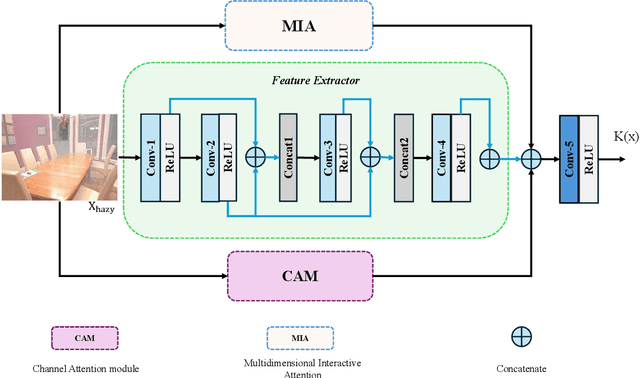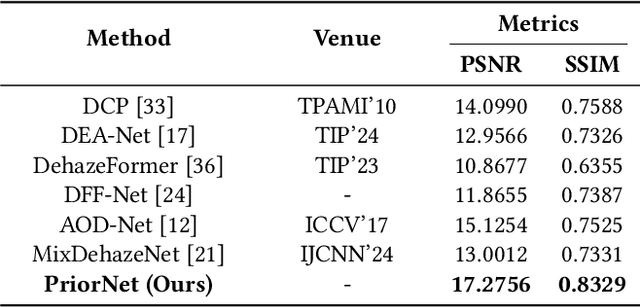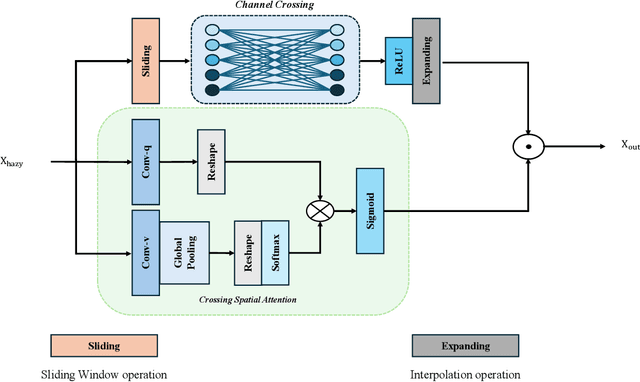PriorNet: A Novel Lightweight Network with Multidimensional Interactive Attention for Efficient Image Dehazing
Paper and Code
Apr 24, 2024



Hazy images degrade visual quality, and dehazing is a crucial prerequisite for subsequent processing tasks. Most current dehazing methods rely on neural networks and face challenges such as high computational parameter pressure and weak generalization capabilities. This paper introduces PriorNet--a novel, lightweight, and highly applicable dehazing network designed to significantly improve the clarity and visual quality of hazy images while avoiding excessive detail extraction issues. The core of PriorNet is the original Multi-Dimensional Interactive Attention (MIA) mechanism, which effectively captures a wide range of haze characteristics, substantially reducing the computational load and generalization difficulties associated with complex systems. By utilizing a uniform convolutional kernel size and incorporating skip connections, we have streamlined the feature extraction process. Simplifying the number of layers and architecture not only enhances dehazing efficiency but also facilitates easier deployment on edge devices. Extensive testing across multiple datasets has demonstrated PriorNet's exceptional performance in dehazing and clarity restoration, maintaining image detail and color fidelity in single-image dehazing tasks. Notably, with a model size of just 18Kb, PriorNet showcases superior dehazing generalization capabilities compared to other methods. Our research makes a significant contribution to advancing image dehazing technology, providing new perspectives and tools for the field and related domains, particularly emphasizing the importance of improving universality and deployability.
 Add to Chrome
Add to Chrome Add to Firefox
Add to Firefox Add to Edge
Add to Edge